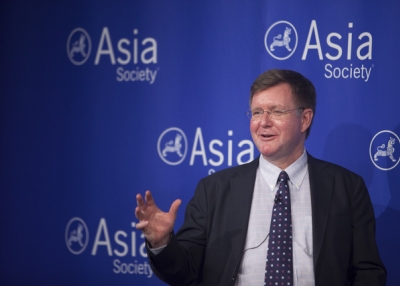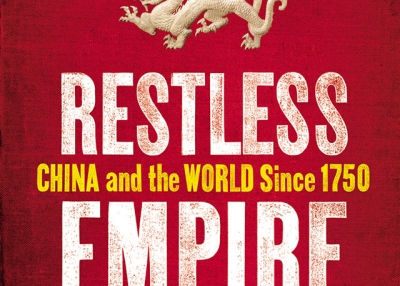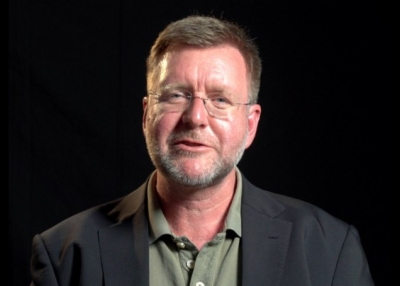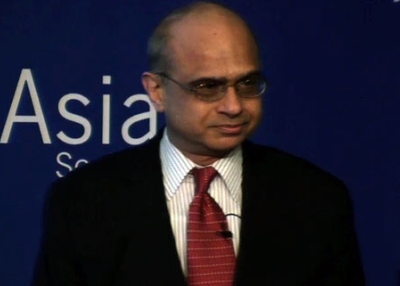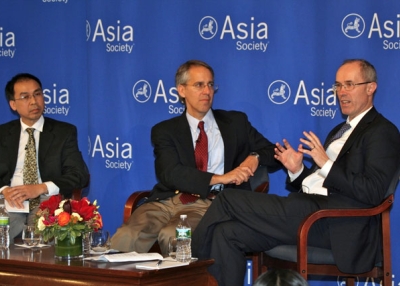2012 Asia Society Bernard Schwartz Book Award
Water: Asia’s New Battleground by Brahma Chellaney
Water: Asia’s New Battleground (Georgetown University Press) by Brahma Chellaney has won the 2012 Asia Society Bernard Schwartz Book Award. Dr. Chellaney, a professor of strategic studies at the Centre for Policy Research in New Delhi, will be honored and presented with a $20,000 prize at a special event to be held at Asia Society’s headquarters in New York City on January 23. An additional event with Dr. Chellaney will be taking place in coordination with the India Project at the Brookings Institution in Washington, D.C. on January 24.
The Asia Society Bernard Schwartz Book Award is the only award that recognizes nonfiction books for their outstanding contributions to the understanding of contemporary Asia or U.S.-Asia relations, as well as potential policy impacts relating to the region. Water: Asia’s New Battleground was selected from nearly 90 nominations submitted by U.S. and Asia-based publishers for books published in 2011.
A jury co-chaired by Tommy T. B. Koh, Singapore’s Ambassador-at-Large, and Carol Gluck, George Sansom Professor of History at Columbia University, and composed of leading experts and figures from policy, academia, and journalism from India, Indonesia, Japan, Singapore, Thailand, and the United States selected the winner and honorable mentions.
According to Ambassador Koh, “This timely, comprehensive, and forward-looking book makes the compelling case that water will likely emerge as one of Asia's biggest security challenges in the 21st century. The equitable and sustainable management of Asia's great river systems should be a priority on the global agenda.”
Dr. Gluck added, "Conflicts over water are an increasingly pressing problem in many places. In his important book, Brahma Chellaney alerts us to the challenges facing Asia in assuring adequate water supplies across the region."
“Water: Asia’s New Battleground underscores the importance of water as a means of security at multiple levels in Asia,” said Suzanne DiMaggio, Vice President of Asia Society’s Global Policy Programs. “Policymakers need to look at this vital resource in a way that takes into account the complex national security and development issues countries and communities will face as water scarcity in the region intensifies.”
Two honorable mentions were also chosen: Deng Xiaoping and the Transformation of China, by Ezra Vogel (Belknap Press of Harvard University Press) and Cambodia’s Curse: The Modern History of a Troubled Land by Joel Brinkley (PublicAffairs). Each will receive a $2,000 prize.
Previous years’ winners of the Book Award include Richard McGregor for The Party: The Secret World of China’s Communist Rulers (2011), James C. Scott for The Art of Not Being Governed: An Anarchist History of Upland Southeast Asia (2010), and Duncan McCargo for Tearing Apart the Land: Islam and Legitimacy in Southern Thailand (2009).
Asia Society established the first annual Bernard Schwartz Book Award in 2009. This major international award recognizes nonfiction books that provide outstanding contributions to the understanding of contemporary Asia or U.S.-Asia relations. In keeping with the Asia Society's mission, the award is designed to further public awareness of the changes taking place in Asia and the implications for the wider world, and to raise the profile of authors making a meaningful contribution to this dialogue.
Click here to purchase the finalist books at AsiaStore.
For rules and eligibility requirements, please click here.
2012 Jury Members

Carol Gluck (Co-Chair) is the George Sansom Professor of History at Columbia University. She specializes in modern Japan, from the late nineteenth century to the present, international relations, and historiography and public memory in Japan and the West. Her most recent publication is Thinking with the Past: Japan and Modern History (University of California, 2008). Her forthcoming book is titled Past Obsessions: World War Two in History and Memory (Columbia University Press). She is a Trustee Emeritus of Asia Society.
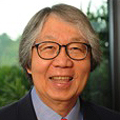
Tommy T.B. Koh (Co-Chair) is Singapore’s Ambassador-At-Large, and is Chairman of the Centre for International Law and Rector of Tembusu College at the National University of Singapore. He is on secondment from the Faculty of Law of the National University of Singapore. Among his many government appointments, he has served as Singapore’s Permanent Representative to the United Nations, High Commissioner to Canada, and Ambassador to the United States and Mexico. He is a member of Asia Society’s Global Council.
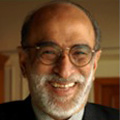
Ashok Advani is the Chairman, Publisher, and Founder of Business India Group of Publications, which includes India’s most respected business magazine publication, Business India; Inside Outside, a monthly magazine on interior design and architecture; and Auto India, a monthly auto magazine. He is also the Chairman of the Business India Institute of Finance, a New Delhi-based institution providing finance education. He was a leading lawyer and practiced at the Bombay (Mumbai) bar for over 20 years. He is a member of Asia Society’s Global Council.
.jpg)
James Fallows is a national correspondent for The Atlantic and has written for the magazine since the late 1970s. He spent two years as chief White House speechwriter for Jimmy Carter, two years as the editor of US News & World Report, and six months as a program designer at Microsoft. He is also the chair in U.S. media at the U.S. Studies Centre of the University of Sydney, Australia. His books, Blind Into Baghdad (2006) and Postcards From Tomorrow Square (2009), are based on his writings for The Atlantic. His latest book, China Airborne, will be published in May 2012.
 (120x120).jpg)
Susan Glasser is the editor-in-chief of Foreign Policy. A longtime foreign correspondent and editor for the Washington Post, she joined Foreign Policy in 2008. She spent four years as co-chief of the Post's Moscow Bureau, throughout President Vladimir Putin's first term, during which time she also traveled extensively around the countries of the former Soviet Union. Together with her husband, New York Times White House correspondent Peter Baker, she wrote Kremlin Rising: Vladimir Putin's Russia and the End of Revolution, which was published in 2005. She also covered the wars in Afghanistan and Iraq as a correspondent for the Post.
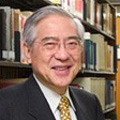
Kazuo Ogoura is currently serving as Secretary General of the Council of Tokyo 2020 Bid Committee. Prior to his appointment to the Committee, Ambassador Ogoura was President of the Japan Foundation from 2003–2011. Before this, he was a Visiting Researcher at the National Institute for Research Advancement and an invited Professor at Aoyama Gakuin University. He worked in the Ministry of Foreign Affairs of Japan for 40 years before retiring in 2002. His key posts in the Ministry included Director-General of the Cultural Affairs Department, Director-General of the Economic Affairs Bureau, and Deputy Vice Minister of Foreign Affairs. He was also Japan’s Ambassador to Vietnam, South Korea, and France.
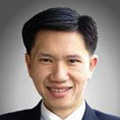
Thitinan Pongsudhirak is an Associate Professor of International Relations at Chulalongkorn University in Thailand and is Director of the Institute of Security and International Studies in Bangkok. From 2009–2010, he was a Visiting International Scholar at Stanford University’s Humanities Center. Prior to this, he served as a Salzburg Global Seminar Faculty Member, Japan Foundation's Cultural Leader, and a Visiting Research Fellow at the Institute of Southeast Asian Studies in Singapore. For ten years, in tandem with his academic career, he worked as an analyst for The Economist Intelligence Unit.

Susan Shirk is Director of the University of California’s system-wide Institute on Global Conflict and Cooperation and Ho Miu Lam professor of China and Pacific Relations at UC San Diego. From 2008–2009, she was the Arthur Ross Fellow of the Center on U.S.-China Relations at Asia Society. She also served as Deputy Assistant Secretary of State in the Bureau of East Asia and Pacific Affairs from 2000–2003, with responsibility for China, Taiwan, Hong Kong, and Mongolia. Her most recent publication is Changing Media, Changing China, which was published in 2011.
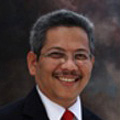
Rizal Sukma is Executive Director of the Centre for Strategic and International Studies in Jakarta, Indonesia. He is also Chairman of International Relations in the Muhammadiyah Central Executive Board, and a member of the Board of Governors of the implementing agency for the Bali Democracy Forum at the Institute for Peace and Democracy. He has served as a member of the National Committee on Strategic Defense Review at the Ministry of Defense of the Republic of Indonesia, and the National Drafting Committee for the National Defense Bill and the Armed Forces Bill. He is the first Indonesian to receive the Nakasone Award and was named as one of 100 Top Global Thinkers by Foreign Policy magazine in 2009.

